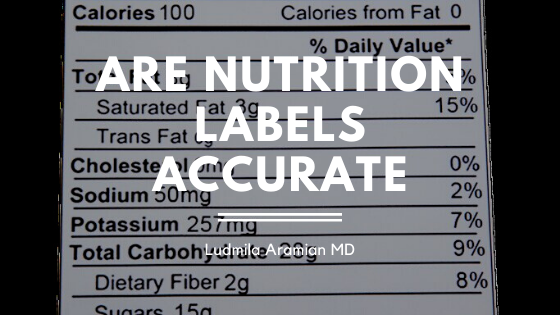For some people, they rely on the nutritional label to monitor their calorie intake. Whether it’s losing weight or gaining muscle weight, calories are important to track to ensure you meet your goals. Recently, there have been numerous studies done to test the accuracy of nutrition labels. The FDA allows for errors in the accuracy of calories, usually 20% in either direction. For example, if a consumer product lists it has 100 calories, the calorie count is between 80 to 120 calories. Even worse, the FDA does not have a strict adherence to the calorie accuracy error. The whole system is based on honesty and trust, leaving it up to the food manufacturers to give accurate results. Are nutrition labels accurate, specifically when counting calories? Where do the numbers come from?
Calculating the calorie count:
If food manufacturers are honest, they test the number of calories a particular item has by dropping a sample in a machine called a bomb calorimeter. The bomb calorimeter is a small chamber where a product is burned to heat water. The more the water temperature increases, the higher the calorie count. On the contrary, there is another method for calculating calories. Most often, food manufacturers will add up calories of all the ingredients in their products with a standard nutrient database. In theory, this method gives the same number of lab analysis, granted the data is correct.
Determining Accuracy:
As stated above, there have been numerous studies on the accuracy of calorie count on nutrition labels. Each study has differing conclusions, but they all have one theme in common: debunking the calorie count. To summarize 2 studies, an informal study was conducted by the New York Times in 2013. A filmmaker hired food scientists to evaluate 5 common items in his diet. The findings were shocking. Three out of 5 items (burrito, muffin, and sandwich) clocked in more calories than anticipated. A more formal study later in 2013 concluded that snacked goods including chips and baked goods only had a 4% discrepancy between the actual calories listed. The difference was mainly due to the varying carbohydrate content in the food.
What does all of this mean? Counting calories is a measure of how much energy you intake into your body. Counting calories is not a determinant of how healthy you are. A well-balanced diet that includes the daily vitamins your body requires to reproduce and survive is the most important factor in obtaining overall wellness.

